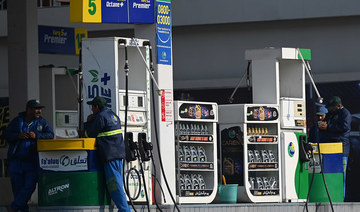KARACHI: The International Monetary Fund’s (IMF) $3 billion bailout deal will provide much-needed fiscal space to Pakistan but not solve the country’s long-term problems, financial experts and economists said on Saturday.
Subject to the IMF’s board approval in July, the stand-by arrangement (SBA) provides breathing space to a Pakistani economy staring at default and in dire need of external financing. The staff-level pact was announced a day before Pakistan’s previous $6.5 billion loan program with the IMF expired.
Cash-strapped Pakistan will get $1.1 billion in funds under the new financing arrangement right after the IMF’s board meeting in mid-July. The new deal provides Pakistan more than the $2.5 billion disbursement it expected to receive under the Extended Fund Facility (EFF) program that concluded incompletely on June 30, 2023.
“The SBA provides some much-needed space to the Pakistani economy and will most certainly dampen near-term uncertainty,” Uzair Younus, director of the Pakistan Initiative at the Washington-based think tank, the Atlantic Council, told Arab News.
“However, the economy remains in a precarious situation and the government has to try and sort out some of the major issues in the energy sector, reduce distortion in the exchange rate market, and adopt a policy framework that doesn’t just burn the external financing the country has unlocked to achieve near-term political objectives.”
Economists say the deal will only offer Pakistan short-term respite.
“It will not solve long-term problems of paying on average around $25 billion per year for the next three years,” Dr. Ikram ul Haq, a Lahore-based senior economist, told Arab News.
The new deal came through after Finance Minister Ishaq Dar revised the federal budget the government passed on June 9, 2023. Dar increased Pakistan’s revenue collection target to Rs9.415 trillion ($33 billion) and put total spending at Rs14.480 trillion ($51 billion), increasing the petroleum levy from Rs50 to Rs60 per liter.
Authorities have taken Rs215 billion ($752 million) additional tax measures, cut Rs85 billion expenditures, hiked allocations under the social safety Benazir Income Support Program (BISP) by Rs16 billion, and withdrew amnesty on foreign exchange inflows, while the central bank jacked up policy rate by 1 percent to record high at 22 percent in an emergency meeting.
Economists said the high cost of the IMF bailout package would be borne by the masses rather than the elite.
“The key to success of SBA and next program will be structural reforms that is Waterloo of our elites,” Haq said, adding that “the real victims will be masses who will pay higher indirect taxes and bear high cost of utilities as has happened under previous program.”
For now, the SBA has had a positive impact on local and international investors’ confidence, with Pakistan’s sovereign dollar bond, maturing in 2024, gaining its value as fears of default subsided.
“Significant upward movement in bond prices demonstrates growing optimism among investors regarding Pakistan’s ability to address its economic challenges and implement necessary reforms under the IMF-supported program,” Tahir Abbas, head of research at Arif Habib Limited told Arab News.
Pakistani analysts and currency dealers expect that the country’s capital markets may rally from next week in response to positive the development, which would unlock further funding from bilateral and multilateral partners.
Malik Bostan, president of the Exchange Companies Association of Pakistan (ECAP) hoped the IMF deal would help Pakistan’s national currency regain its lost value.
“The rupee is expected to recover about Rs5 to Rs10 on the opening day of trading and will further strengthen by Rs10 to Rs20 with the inflow of funds,” Bostan told Arab News. “Those hoarding dollars for gains will not suffer losses if they don’t come out to sell.”
IMF’s $3 billion bailout deal will not solve Pakistan’s long-term problems, say experts
https://arab.news/y4ymw
IMF’s $3 billion bailout deal will not solve Pakistan’s long-term problems, say experts
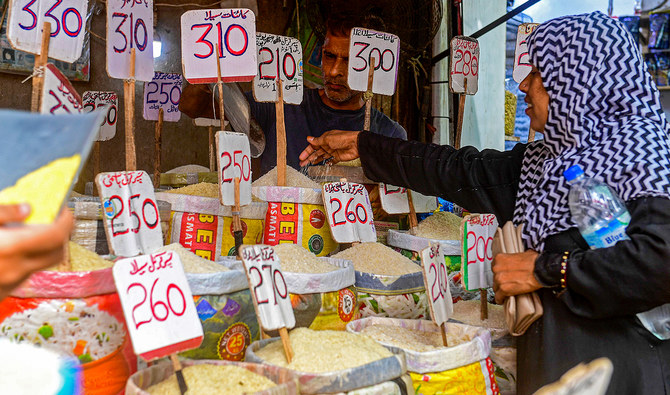
- Economists say IMF agreement provides much-needed space to Pakistani economy, will dampen near-term uncertainty
- Pakistani rupee to recover by Rs10-20 against the US dollar when the IMF funds are received, says currency dealer
Pakistan anticipates more high-level Saudi business delegations amid stronger bilateral ties

- Foreign office says the two countries are involved in robust dialogue that has gained significant momentum
- It categorically denies reports that Pakistan is providing military bases to any foreign country against anyone
ISLAMABAD: Pakistan anticipates continued visits by high-level business delegations from Saudi Arabia in the upcoming weeks to further explore investment opportunities facilitated under the Special Investment Facilitation Council (SIFC), the foreign office announced on Thursday.
The statement came just days after Prime Minister Shahbaz Sharif concluded his visit to Riyadh, where he addressed the two-day World Economic Forum conference that began on April 28.
During his visit, Sharif met with Crown Prince Mohammed bin Salman and several Saudi ministers to strengthen bilateral relations and economic partnerships between the two nations.
Prior to his visit to the kingdom, Saudi Foreign Minister Faisal bin Farhan was in Islamabad with a large delegation, saying the Pakistani administration’s resolve to strengthen the economy would yield “significant benefits.”
“Saudi investors have been coming to Pakistan in recent months, and engaged with the SIFC in terms of exploring opportunities for Saudi investments in Pakistan, and this is an ongoing process, and we expect similar high-level business delegations to undertake visits to Pakistan in the coming days and weeks as well,” foreign office spokesperson Mumtaz Zahra Baloch told reporters in her weekly media briefing.
She added that both countries were involved in robust and mutually beneficial dialogue that had gained significant momentum in recent months.
“Pakistan and Saudi Arabia are engaged in consultations with each other in terms of increased Saudi investments in Pakistan, including in the energy domain,” she added.
Asked about reports of Pakistan providing military bases to the United States, Baloch called them baseless rumors.
“Pakistani has no plan to provide any bases to a foreign country against any other country,” she continued.
Speaking about the Organization of Islamic Cooperation’s summit in Gambia, the spokesperson said the country’s deputy prime minister Ishaq Dar would highlight the ongoing genocide in Gaza, the right to self-determination of the people of Jammu and Kashmir, the imperatives of solidarity and unity of the Muslim Ummah, rising Islamophobia, issues of climate change, terrorism, and other contemporary global challenges.
She said Pakistan strongly condemned the escalating violations of human rights by Israel and increasing number of illegal Israeli settlements in the West Bank.
“Israel’s actions constitute a breach of international law, including humanitarian laws and other pertinent international laws, and these acts also undermine any prospects of a two-state solution,” she added.
Pakistan vows ‘foolproof security’ for Chinese nationals after militant attacks
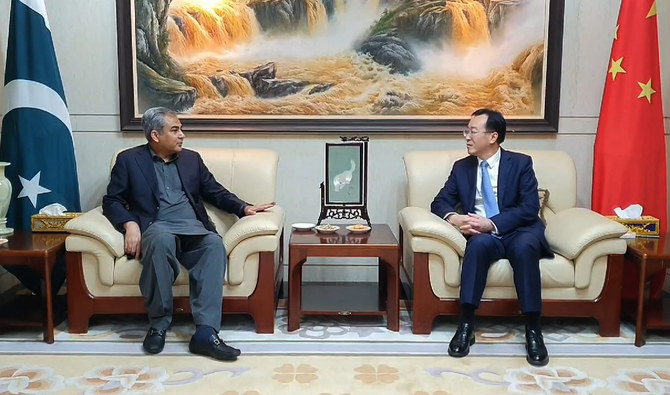
- Interior minister says government implementing strict security protocols for safe movement of Chinese workers
- A suicide bomber targeted a convoy of Chinese nationals near Dasu earlier this year, killing five of them
ISLAMABAD: Pakistan’s interior minister Mohsin Naqvi said on Thursday the government would ensure “foolproof security” for Chinese nationals following militant attacks targeting them in the country where most of them have been working on infrastructure development projects.
Naqvi made this assurance during his visit to the Chinese consulate in Karachi, where he discussed the issue in his conversation with a top diplomat Yang Yuandong, who welcomed the minister to the facility.
Five Chinese nationals were killed earlier this year in March after a suicide bomber rammed an explosives-laden vehicle into their convoy which was on its way from Islamabad to the site of a key hydroelectric dam in Dasu.
Prior to that, Chinese workers also came under attack by Baloch separatists near the Gwadar port. The incident led to the death of eight militants.
“It is our duty to ensure foolproof security for Chinese citizens,” Naqvi said during the during his visit to the consulate. “Strict implementation of standard operating procedures for safe movement of Chinese citizens is being ensured.”
Pakistan took action against a number of senior officials after the Dasu attack, saying they showed negligence and had failed to follow the security protocol.
He said the “enemy” wanted to undermine the China-Pakistan friendship but would not succeed.
According to a statement circulated by the ministry, the Chinese diplomat expressed satisfaction with the overall security plan for the protection of the Chinese workers.
Pakistan’s cricket body names 18-player squad for T20I series against England, Ireland

- A 15-player squad for the ICC Men’s T20 World Cup will be announced before the May 24 deadline
- Fast bowler Haris Rauf along with all-rounders Hasan Ali and Salman Ali Agha have been recalled
ISLAMABAD: The Pakistan Cricket Board (PCB) on Thursday announced the 18-player squad for the upcoming T20I series against Ireland and England & Wales beginning on May 10 and continuing till the end of the month.
According to a PCB statement, the squad will be reduced to 15 players for next month’s ICC Men’s T20 World Cup 2024 after the first T20I at Leeds on 22 May to meet the ICC’s 24 May deadline.
The men’s national selection committee has recalled fast bowler Haris Rauf, along with all-rounders Hasan Ali and Salman Ali Agha, in the 18-player squad.
The two cricketers who did not make the cut from the original 17-player squad that faced New Zealand are wrist spinner Usama Mir and fast bowler Zaman Khan.
“Crafting this squad was a challenging task due to the outstanding talent available,” the PCB selection committee was quoted in the statement. “After thorough deliberation and considering various cricketing aspects, we have finalized 18 players.”
“The squad encompasses a robust top-order featuring Babar Azam, Fakhar Zaman, Mohammad Rizwan, Saim Ayub and Usman Khan; an effective middle-order with Azam Khan, Iftikhar Ahmed and Muhammad Irfan Khan; versatile all-rounders in Imad Wasim, Shadab Khan and Salman Ali Agha; a pace battery led by Mohammad Abbas Afridi, Mohammad Amir, Naseem Shah, Haris Rauf, Hasan Ali and Shaheen Shah Afridi; and the spin prowess of Abrar Ahmed,” it continued.
“We understand Usama and Zaman will be disappointed and they should be as they must be looking ahead to the tours of Ireland and England,” the statement added. “They are quality cricketers and have long careers ahead of them. They need to continue to focus on their cricket so that they are available, if required.”
Haris Rauf and wicketkeeper-batter Azam Khan were sidelined for the New Zealand T20Is due to injuries, while middle-order batter Muhammad Irfan Khan and wicketkeeper-batter Mohammad Rizwan were rested from the two T20Is in Lahore due to niggles.
The four cricketers underwent fitness assessments at the National Cricket Academy on Tuesday afternoon, showing significant improvement.
The team is scheduled to depart for Dublin on May 7 following a three-day training camp in Lahore.
Pakistan PM mourns death of UAE royal, lauds role in strengthening bilateral ties
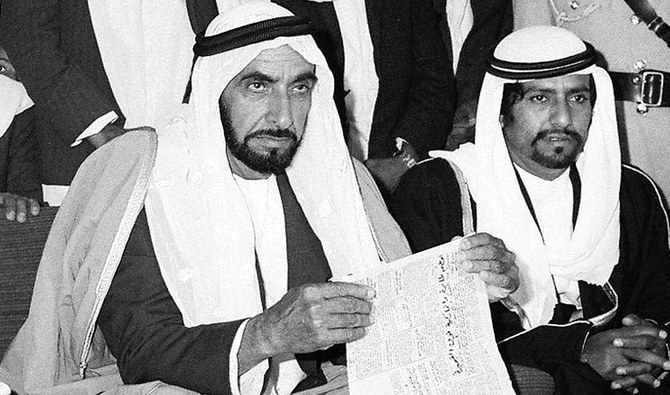
- Sheikh Tahnoun bin Mohammed worked closely with the UAE founding father, helped implement the federal project
- The UAE president has announced a seven-day mourning period after the death of Sheikh Tahnoun on May 1
ISLAMABAD: Prime Minister Shehbaz Sharif on Thursday expressed grief over the death of the United Arab Emirates royal, Sheikh Tahnoun bin Mohammed Al Nahyan, while admiring his contributions to building stronger relations between the two countries.
Sheikh Tahnoun was Abu Dhabi’s representative in the Al Ain region of the Gulf state.
His demise at the age of 82 prompted UAE President Sheikh Mohamed bin Zayed Al Nahyan to announced a seven-day mourning period in which the country’s flag would be flown at half-mast.
“Deeply saddened at the demise of His Highness Sheikh Tahnoun bin Mohamed Al Nahyan,” the Pakistan prime minister said in a social media post. “Our thoughts and prayers are with the leadership and people of the UAE at this hour of grief.”
“He will be long remembered for his contribution to building stronger ties between Pakistan and the U.A.E.,” the post added. “May Allah Almighty grant him eternal peace.”
Sheikh Tahnoun worked closely with the UAE founding father, Sheikh Zayed bin Sultan Al Nahyan, and was part of the team that implemented the federal project that led to the declaration of the Union in 1971.
He also served his country in several key capacities in subsequent years and worked to provide better governance to its people.
Pakistani think tank reports significant surge in militant attacks with 70 killed in April
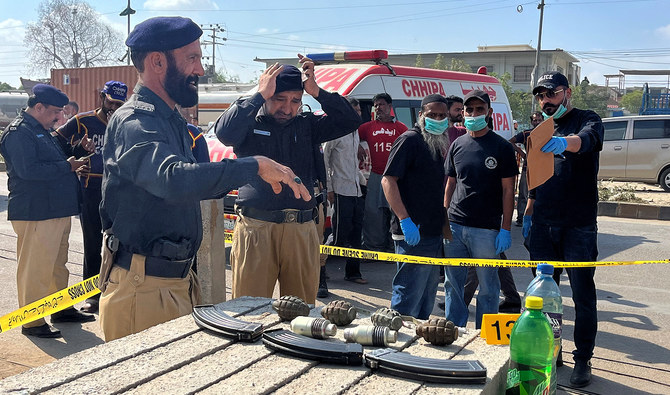
- Pakistan Institute for Conflict and Security Studies says Khyber Pakhtunkhwa suffered maximum militant violence
- Pakistan has endured 323 militant attacks during the first four months of the year, resulting in 324 fatalities
ISLAMABAD: A Pakistani think tank circulated a report on a significant increase in the number of militant attacks in the country on Wednesday, saying 70 people lost their lives in at least 77 verifiable episodes of extremist violence in the month of April.
Pakistan has witnessed a prolonged surge in militant attacks since the breakdown of a fragile ceasefire between the government and a proscribed armed network, Tehreek-e-Taliban Pakistan (TTP), in November 2022.
Apart from TTP fighters, other extremist and separatist groups have also targeted Pakistani security forces and civilians in recent months.
According to Pakistan Institute for Conflict and Security Studies (PICSS), there was a brief lull in March before militant groups resumed their activities last month, with the northwester Khyber Pakhtunkhwa province, particularly its southern districts, bearing the brunt.
“According to PICSS statistics, the country experienced at least 77 verifiable militant attacks during April, resulting in 70 fatalities, including 35 civilians and 31 security forces personnel, with four militants killed, and 67 individuals injured, among whom were 32 civilians and 35 security forces personnel,” the security report said.
“In comparison, March 2024 saw 56 militant attacks, resulting in 77 fatalities and 67 injuries,” it continued. “This indicates a 38 percent increase in the number of militant attacks, although there was a 9 percent decline in deaths, with no change in the number of injuries.”
The Islamabad-based think tank informed Balochistan witnessed 16 attacks, resulting in 21 fatalities, including 17 civilians and four security forces personnel, with 31 individuals injured.
Punjab also experienced a surge in militant activities, with four attacks reported in April compared to one in March, resulting in three fatalities.
“In the first four months of the year, Pakistan experienced a total of 323 militant attacks, resulting in 324 fatalities and 387 injuries,” the report added.



